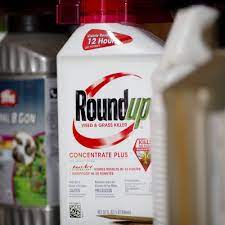Cancer liability lawsuits related to weed killers have been rising, with several high-profile cases attracting media attention. For example, Glyphosate, a chemical found in popular herbicides like Roundup, has been linked to an increased risk of developing cancer.
If you have been exposed to this chemical and have developed cancer, you may be eligible to file a lawsuit against the manufacturer. However, navigating the legal process can be daunting. In this article, you will find six tips for filing a cancer liability lawsuit related to extended exposure to weed killers, helping you understand the process and make informed decisions.
Table of Contents
1. Identify the Manufacturer of the Weed Killer
The first step in filing a cancer liability lawsuit is identifying the product’s manufacturer. It is crucial, as different companies may use different chemicals in their herbicides, and the safety of each chemical can vary. You can usually find the manufacturer’s name on the product label or packaging.
Once you have identified the manufacturer, it is essential to research the company and gather information on its history of producing herbicides. You can check a sample case for your research, like Roundup Lawsuit, so you do not miss out on any crucial details.
Manufacturers like Bayer/Monsanto are facing this lawsuit where their product is the primary cause of injuries like Non-Hodgkin’s Lymphoma and other cancers. It is due to the exposure of its roundup weed-killer product.
If a person is exposed to the roundup weed killer and diagnosed with Hodgkin’s Lymphoma or other cancers, they can file a lawsuit for compensation. Individuals with these malignancies often get a roundup lawsuit payout between USD 5,000 and USD 250,000 in compensation.
Thus, this type of research is crucial in understanding lawsuits or settlements related to their products. In addition, it may be a sign that they have a history of producing dangerous chemicals.
The outcome has started to come as positive, but a little work is still desired for the lawsuit to take its full course. According to Forbes Advisor, as of May 2022, Monsanto has resolved over 100,000 Roundup cases for around $11 billion. However, at the same time, 30,000 cases are still pending to be solved, which needs improvement. Hence, identifying the manufacturer is crucial to seek compensation quickly.
2. Consult with an Attorney About Filing a Lawsuit
Once you have identified the manufacturer of the weed killer and gathered all the necessary information, the next step is to consult with an experienced attorney about filing a cancer liability lawsuit related to extended exposure to herbicides. An attorney specializing in these cases can help you navigate the legal process and ensure you receive the compensation you deserve.
A knowledgeable attorney can advise you on the best course of action and help you determine whether a lawsuit is the correct option for your specific case. They can also help you gather evidence and build a strong case, representing you in court and negotiating with the defendant’s legal team.
Finding an attorney with a proven track record of success in cancer liability cases related to herbicides is essential. Look for an attorney with experience with a case similar to yours and a deep understanding of the legal issues involved.
3. Ascertain the Right Amount of Damages
When filing a cancer liability lawsuit related to extended exposure to weed killers, it is essential to ascertain the right amount of damages to claim. Damages are the compensation you seek for the harm you have suffered, and they can include economic and non-economic losses.
Economic damages may include medical bills, lost income, and other financial losses you have incurred due to your illness. Non-economic damages, on the other hand, may include pain and suffering, loss of quality of life, and emotional distress.
Knowing the entire scope of your losses is crucial for calculating the appropriate damages. It may involve consulting with medical professionals, accountants, and other experts to determine your illness’s financial and emotional impact.
4. Understand Your Rights Under the Law
Understanding your rights under the law protects individuals harmed by dangerous products. You should gain knowledge of these protections and how they apply to your case.
Under the law, manufacturers must produce safe products and warn adequately of potential risks. If a manufacturer fails to meet this duty and their product causes harm, they can be held liable for the harm suffered.
In addition to understanding your rights under product liability law, it is essential to know your rights as a plaintiff in a lawsuit. You have the right to a fair trial and to present evidence to support your case. You also have the right to be represented by an attorney who will advocate for your best interests.
5. Have Evidence That You Were Exposed to the Weed Killer
Evidence that you were exposed to the weed killer is essential when bringing a cancer liability claim involving prolonged exposure to herbicides.
The Guardian reports that these herbicides pose a risk to human health, and 1 in 3 Americans had measurable amounts of a toxic herbicide linked to cancer. Therefore, if you are dealing with such issues due to herbicide’s harmful effects, evidence is necessary to prove that you were exposed to the product and that it was a direct cause of your illness.
To gather evidence of exposure, start by compiling documentation of your work history and any jobs that may have involved working with the weed killer. You should also document any direct contact with the product, including spills, accidents, or other incidents.
6. File Your Claim on Time
Filing your claim on time is a critical factor. In many cases, there are strict time limits for filing a lawsuit, and failure to file within the appropriate time frame can result in losing your legal rights.
Knowing the statute of limitations for your case and ensuring that your claim is filed within the appropriate time frame is essential. The statute of limitations can vary depending on the state where the lawsuit is being filed, as well as the case’s specific circumstances.
Additionally, taking action as soon as possible is vital to preserve evidence and gather documentation. Delaying the filing of your claim can make it tougher to gather evidence and build a strong case.
You Can Make Sure That Your Rights are Safeguarded by Taking These Steps
According to National Institutes of Health studies, the United States is expected to see 1,958,310 new cancer cases and 609,820 cancer deaths in 2023. The statistics show how significant the problem is while dealing with the sickness.
Furthermore, at the same time, it is even more challenging to file a cancer liability lawsuit related to extended exposure to weed killers or herbicides. However, by following these six tips, you can help ensure that your rights are protected and that you receive the compensation you deserve.
Remember, by taking these steps and working with an experienced attorney, you can build a strong case and fight for justice in the face of harm caused by dangerous products.


